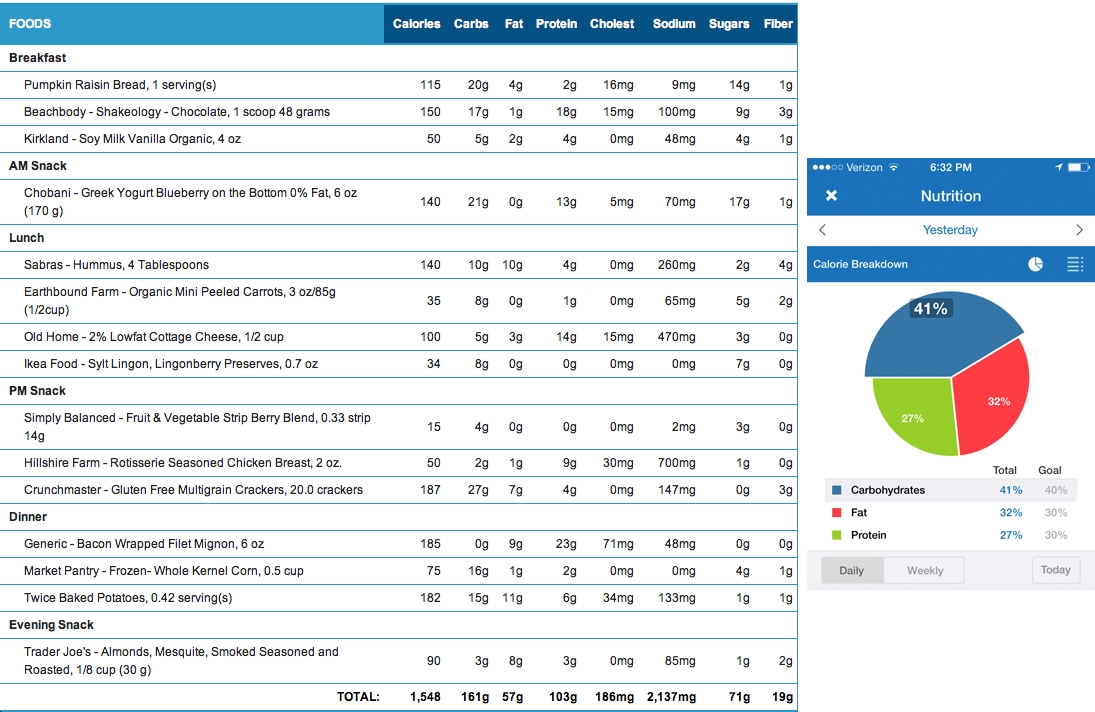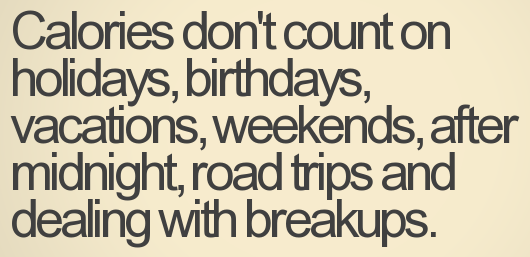
Okay, that is not true. Ha. However, I AM a big fan of working hard and playing hard in terms of rewards for making good choices most of the time with my health and fitness. Many people use special events or stressful situations as an excuse to lose control and deal with it later. Some simple changes in the way you think about your nutrition may change the game by arming you with data to make better decisions while enjoying life. It does not have to be painful or stressful.
We all know that there are many components to your overall health including exercise, nutrition, rest, stress management, social interaction and more. I don’t believe that any one component necessarily dominates the others and that the interactions between the components drive your success. Yes, we have all heard that “abs are made in the kitchen”. Partially true, and it is VERY important to understand your nutrition. SO many people do not want to COUNT CALORIES to dial in their nutrition to achieve their health goals. I don’t blame you, I don’t either! To me, this is not about counting calories, but really about getting the information you need to learn more about the impact of your nutrition decisions derived from tracking food, drinks and supplements.
Another cliche you often hear is that success is all about “calories in, calories out!” Again, I don’t believe that is necessarily true as you could hit your target calories, say 2400 calories for a typical active male, but get there in MANY different ways. You can do all the exercise to burn a certain amount of target calories, but the burn rate and health consequence of your choices can vary dramatically depending on your specific intake. For example, a Burger King Double Whopper with Cheese Meal at 1568 calories (!) is a LARGE fraction of daily intake for most people and is also equivalent to 7 Mars Candy Bars OR 9 bags of potato chips OR 7 beers.
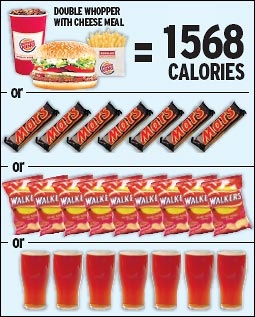
Do you really think that the nutritional value of ANY of these options will be as good as 1568 calories of clean nutrition with salads, lean proteins and other healthy alternatives? Do you really think that the source of your calories is not important, and that the only important thing is calories in vs. calories out? Enough said on that.
Anyway, this blog is not a lecture. I wanted to introduce the importance of tracking your nutrition, if even only once to get a baseline of your current situation. Like I said, it is not necessarily all about “calories in, calories out”, in my mind it is about what is in between in terms of caloric source, macronutrient ratios, sodium content, sugar, fiber, cholesterol, etc. In addition, nutrient timing is critical relative to your goals (e.g., metabolic effect and protein synthesis).
Below are two examples of tracking daily nutrition for lower caloric intake (e.g., leaning out) and higher caloric intake (e.g., mass gain). Of course, the examples are JUST examples, not all-inclusive, and the actual intake may be dependent on the individual and a number of factors including genetics, activity level and goals. In this case, the food, drinks and supplements are tracked using www.MyFitnessPal.com, which is only one of many options to track nutrition.
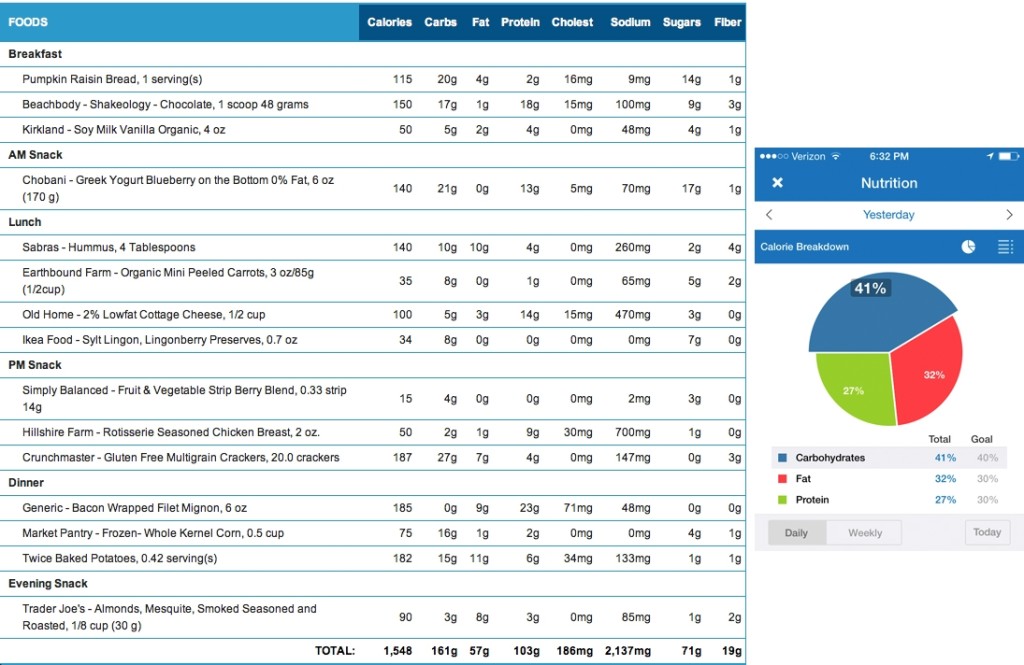
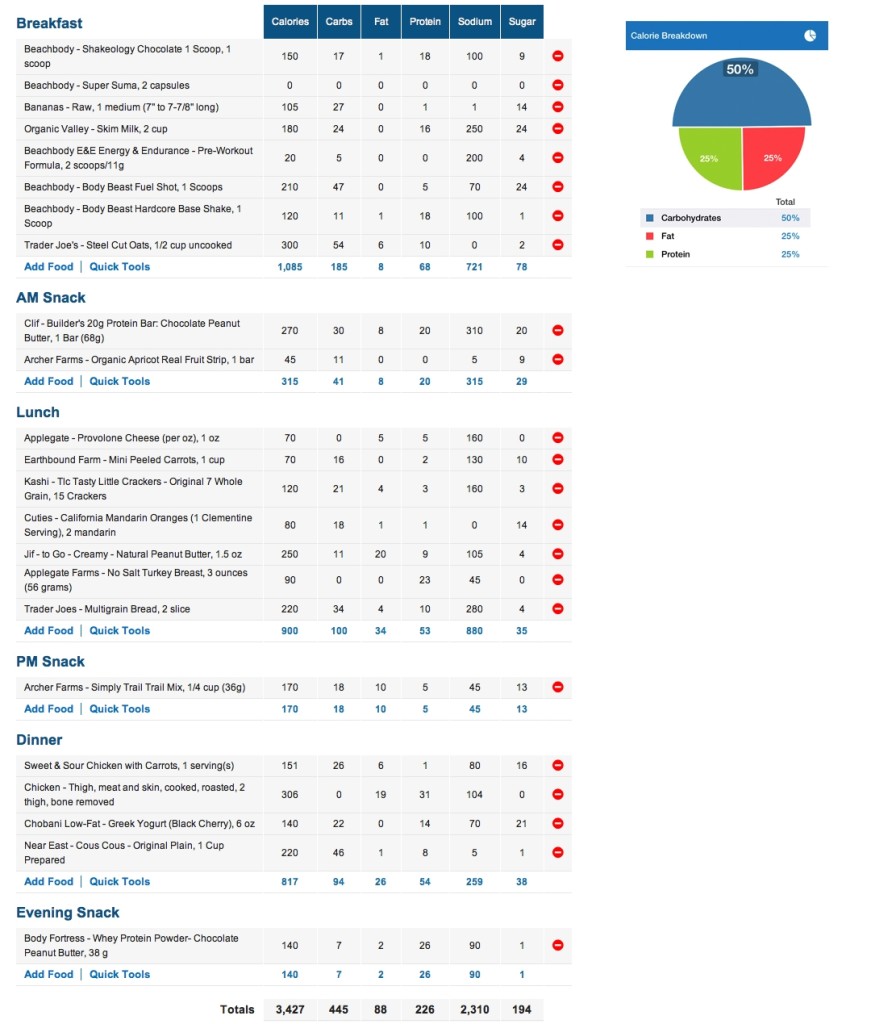
You can see the importance of tracking your food, drinks and supplements for ALL meals and snacks. Not shown here is the tracking of daily water consumption and activity level, but those are important factors to consider as well relative to your goals. The data shows a lot of critical information to consider, however, it is not my intent to dissect these particular nutrition logs in this blog post. Important to note though that the data shows the potential difference in the level of calories and macronutrient ratios of carbs, fat and protein relative to goals of leaning out vs. mass gain. The mass gain nutrition is actual data from my personal diary and consistent with one intake strategy I leveraged to add 12 pounds lean muscle mass in 90 days while reducing body fat percentage by 3%!
Clearly, goals dictate your nutrition. You may be surprised, even shocked, at the nutritional value (or non-value) for your specific current intake. Try it out! Also, I HIGHLY recommend that you track measurements to gauge baseline and progress. Remember, scale weight is NOT king and DOES NOT tell the ENTIRE story. I recommend tracking body fat and waist measurement at a minimum along with any other measurements including chest, arms, legs, etc., first thing in morning after going to the restroom with no clothes to avoid hydration, digestion and other variance.
Let’s do this!
